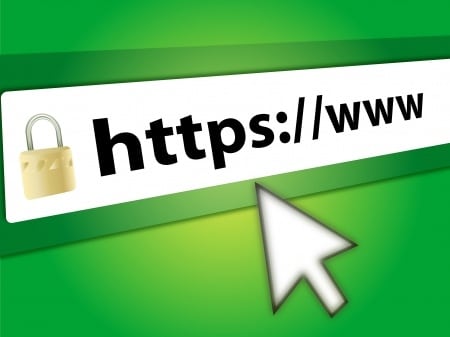 Ensuring that your current website and business run on HTTPS protocol (SSL) means a variety of benefits, requirements, and other needs will be met in the current demands of today’s market.
Ensuring that your current website and business run on HTTPS protocol (SSL) means a variety of benefits, requirements, and other needs will be met in the current demands of today’s market.
In fact, most new browsers add-ons, and other features specifically require that websites being viewed, visited, or utilized have SSL encryption certification and protection in place.
This also includes more progressive websites and apps, because it is the current market standard, recognized, and trusted by both companies and consumers alike throughout the world.
Why SSL?
Other examples of why SSL or HTTPS protection is necessary is because it secures not only you and your customer’s data, but also the usage of their browsers and private computer systems or networks.
When you add SSL to a Standard Hyper Text Transfer Protocol (HTTP) you, in turn, get a Hyper Text Protocol Secure (HTTPS) or otherwise accredited, recognized, and trusted website or business.
In fact, there are several levels of SSL features for websites and businesses, some even being as stringent as requiring a background check on a company before certification.
SSL’s are unique because they are not only designed to protect your primary website, but also sub-domains – which means it can be used to protect up to 250 of YOUR domains!
Website hypertext and common functions like “getUserMedia()” as well as geolocation features are also other, interactive media-related examples of why SSL is so critical to any website or business serious about successfully marketing itself.
Where Google Currently Stands on SSL
Google has already publicly announced that it will favor websites protected by SSL in its search results – and ultimately begin marking such websites otherwise unprotected with an untrusted title and Red Triangle Warning – which is sure to deteriorate website traffic for those who are non-compliant.
SSL certification on websites is also a standard requirement for Android users, and those looking to use or interact with such mobile-friendly websites. Ultimately, SSL is also going to deliver more consistent, preferred referral data via Google – which means other major search engines are likely to follow this trend.
Most PC’s, when they interact with websites that do not have SSL certification and protection will attempt to warn and block you with a warning that data is NOT secure, and offer you the opportunity to either turn back, or “Add an Exception” for said site.
Additionally, newer, planned Google features also require internet browsers using HTTP/2 Protocol technology, and requiring that HTTPS is enabled.
For any business or product owner, you’ve likely come to learn by now that SEO or Search Engine Optimization is critical when it comes to effectively marketing your product, and obtaining organic traffic.
Due to malicious users, and the rise of “hackers” looking for new ways to exploit websites and steal user’s data, SSL is becoming the new standard in today’s websites. That is, especially those that involve the transmission of financial or private data between the user, site, and even your PC – as the domain owner.
As businesses and websites have done in the past, statistically speaking it is only in the best interest of website and App owners alike to ensure the necessary SSL certification if they’re counting on legitimate, consistent, and long-term SEO marketing techniques that will turn a profit.
The last thing you want is to be ‘black-listed’ or marked as undesirable on a multi-billion dollar top global search engine like Google – after all, this will more than likely be the driving force behind the majority of your customers and website visitors.
In the end, obtaining SSL certification and protection for your domain, business, and products will gain you more trust from your customers, and in turn the most successful business model possible.
So, don’t wind up on the wrong end of the modernization of HTTPS protocol (SSL) protection – and get yours today!
Image credit: Hua Kiang Foong
